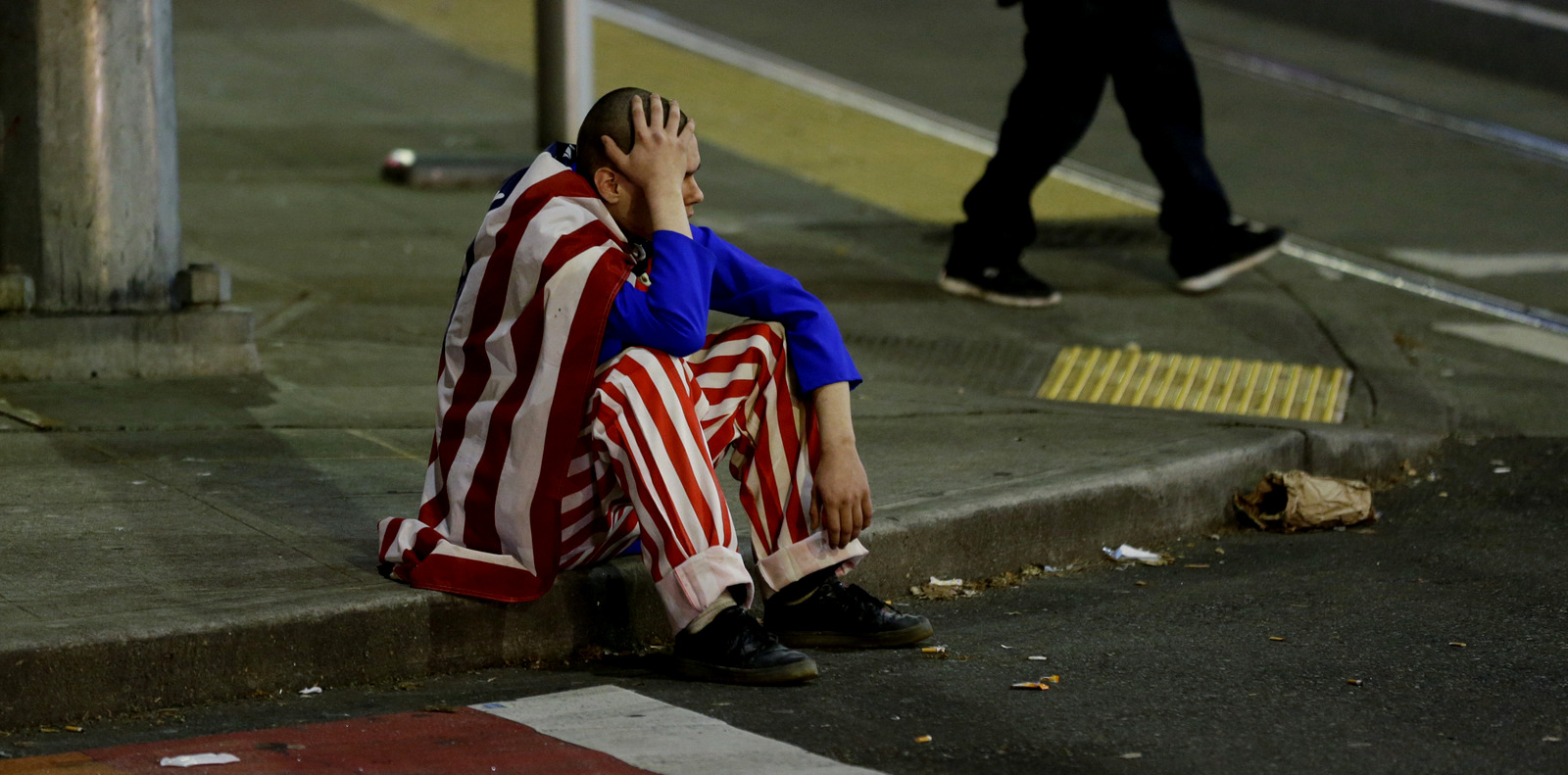For the past two years, the long-running narrative, at least that promulgated by the mainstream media which continues to “explain away” Hillary Clinton’s loss to Donald Trump, is that Americans had fallen for a massive, long-running fake news scam (in part aided and abetted by the likes of Facebook), which boosted Trump’s popularity at the expense of Hillary’s as part of some giant “Russian collusion” conspiracy theory between the Trump campaign and the Kremlin (which Mueller was supposed to uncover, but has instead shifted to investigating obstruction, seemingly unable to find anything).
But what if that entire narrative is dead wrong: what if Americans have become so skeptical in the government process and structure, they never needed a “fake news” boost to vote for an establishment outsider?
According to a new poll, that’s precisely the case because a supermajority of Americans believes the faction of unelected officials, known as the deep state, is orchestrating policy in Washington, D.C. and effectively running the nation.
The Monmouth University Polling Institute found that no less than 74% of Americans believe in a “deep state” when it is described as a collection of unelected officials running policy. Only 21% do not believe this kind of group exists.
As a result of countless “conspiracy theories” being proven as facts in recent years, chief among which the Edwards Snowden revelations which exposed the NSA as nothing short of “big brother”, and the Wikileaks disclosures which revealed how the Democratic Party colluded against Bernie Sanders to promote Clinton’s candidacy and countless more such examples, fully 8-in-10 believe that the U.S. government currently monitors or spies on the activities of American citizens, including a majority (53%) who say this activity is widespread and another 29% who say such monitoring happens but is not widespread. Just 14% say this monitoring does not happen at all. Shockinly, there were no substantial partisan differences in these results.
What is even more surprising, is that the poll found than 7 out of 10 Americans polled in each political group, not just Republicans but Democrats and independents as well, believe in a deep state.
31% of Republicans and 33% of independents say they believe a deep state “definitely exists,” while 19% of Democrats believe this.
“We usually expect opinions on the operation of government to shift depending on which party is in charge,” Monmouth University Polling Institute Director Patrick Murray said in a statement. “But there’s an ominous feeling by Democrats and Republicans alike that a ‘Deep State’ of unelected operatives are pulling the levers of power.”
While there is general partisan agreement on concerns about government overreach, there are some notable differences in the level of concern by two very different demographic metrics: race and membership in the National Rifle Association.
Americans of black, Latino and Asian backgrounds (35%) are more likely than non-Hispanic whites (23%) to say that the Deep State definitely exists. Non-whites (60%) are also somewhat more likely than whites (50%) to worry about the government monitoring them and similarly more likely to believe there is already widespread government monitoring of U.S. citizens (60% and 49%, respectively). More non-whites (35%) than whites (23%) say that such monitoring is rarely or never justified.
The Monmouth University Poll also found that NRA members (43%) are significantly more likely than other Americans (25%) to definitely believe in the existence of a Deep State operation in DC. In a Monmouth poll released earlier this month, NRA members voiced opposition to the establishment of a national gun registry database in part because of their fear it would be used to track other activities of gun owners. NRA members (63%) are somewhat more likely than other Americans (51%) to worry about the government monitoring them and similarly are more likely to believe there is already widespread government monitoring of U.S. citizens (61% and 51%, respectively). However, there are no significant differences between NRA members (30%) and others (26%) on whether such monitoring is rarely or never justified when it does occur. The opinion of gun owners who are not NRA members are more similar to non-gun owners than they are to NRA members on these questions.
“Anxiety about a possible ‘Deep State’ is prevalent in both parties, but each has key constituent groups who express even greater concerns about the potential for government overreach. This includes racial and ethnic groups who still experience the effects of historical prejudice as well as gun owners who fear their constitutional rights are being threatened,” said Murray. “Can those fears be allayed or will they intensify and spread? Or is this just the new normal? This is something we will have to keep tracking.”
Ironically, the poll also found that a majority of those polled, 63%, said they were “not familiar” with the term “deep state,” however. Thirteen percent said they were “very familiar,” while 24 percent said they were “somewhat familiar.” In other words, someone else is running the country, just not those who are supposed to be.
“This is a worrisome finding. The strength of our government relies on public faith in protecting our freedoms, which is not particularly robust. And it’s not a Democratic or Republican issue. These concerns span the political spectrum,” said Murray.
It also means that if it was indeed Russia that wanted to brainwash America (spoiler alert: America has been quite successful in doing to itself for generations without Russian influence), it has already succeeded and that if Putin plans to run for re-election in 2024 he may have to do so in the US.
Read the Monmouth University Polling Institute report
Top Photo | A man dressed in red-white-and-blue sits on the curb during a protest against President-elect Donald Trump, Nov. 9, 2016, in Seattle’s Capitol Hill neighborhood. (AP/Ted S. Warren)


